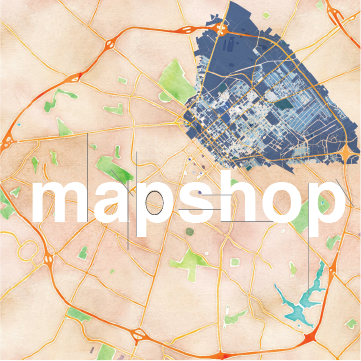GIS Workshop at the University of Kentucky is becoming Community Mapshop this Spring semester. I've retooled the course and the partnerships, hoping to inspire a different kind of community-based classroom project from those in 2013, 2012, 2011, and 2010. Think Bunge and Wood. More studio; less laboratory. This course will become part of a broader initiative within the College of Arts & Sciences at UK, beginning in Fall 2015, simply called Mapshop: http://mapshop.as.uky.edu. (Our website currently points to the old GIS Workshop page under the New Mappings Collaboratory, but the new site will be functioning by December 2015.)
The course description for this Spring follows:
أكثر...
The course description for this Spring follows:
A key change in this year's course offering is that the course is geographically-focused on the northeast quadrant of Lexington, Kentucky. Course participants will be encouraged to find connections and alignments with the variety of nonprofit and other community-based organizations that service this area, but these partners are not identified in advance.Drawing on the last twenty-five years of scholarship in critical cartography and critical GIS, this workshop begins from the premise that maps are more than windows on the world. Maps do not only provide a record of geographic phenomena but actually impact the conditions of knowing itself. This ‘more-than-representational’ viewpoint enables a productive urgency at the heart of a collaborative or participatory mapping endeavor. Therefore, the goal for this course is to prepare each student as a responsive and responsible mapmaker, at a moment in digital culture when there are many maps but few stories being told through them. To meet this goal, this course develops the concept of the ‘community mapshop’ -- an intensive studio experience in which students use mapping technologies in collaboration with community partners. These partnerships will involve students in a full range of collaborative mapmaking: working with peers and community partners to invest in a study area, acquire and prepare data for spatial analyses, communicating with those impacted by or implicated in these analyses, and produce compelling geographic representations.
I'm looking forward to this year's #mapshop. If you have ideas to focus our mapping work over the next four months or want to get involved, please feel free to contact me.A regional study must be done by a geographer who calls the region home. It is impossible to understand the neighborhood without being a neighbor. . . . [T]he geographer gets a piece of the neighborhood, but then the neighborhood gets a piece of the geographer. (Bunge 1971, xxx, as quoted in Preston and Wilson 2014)
أكثر...

